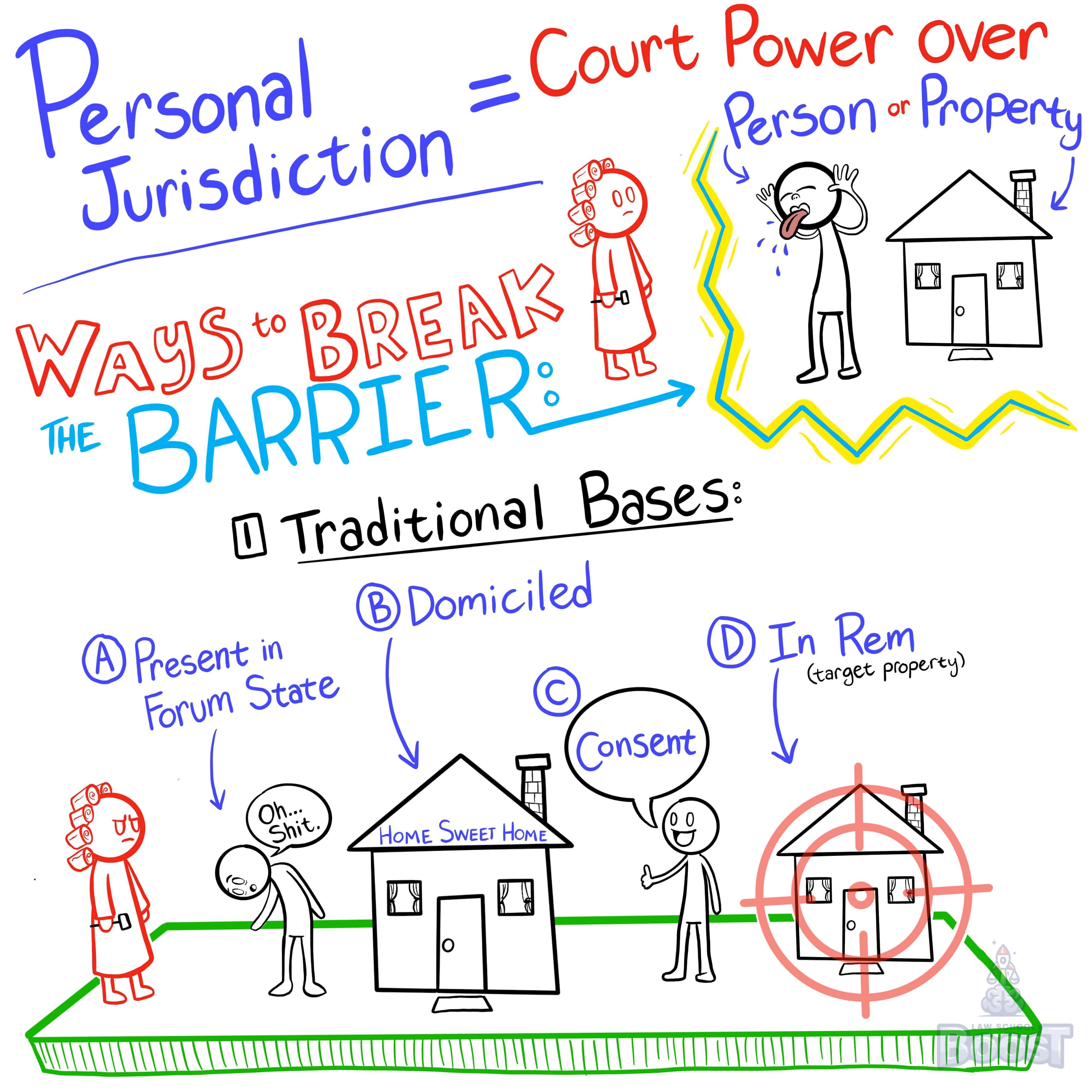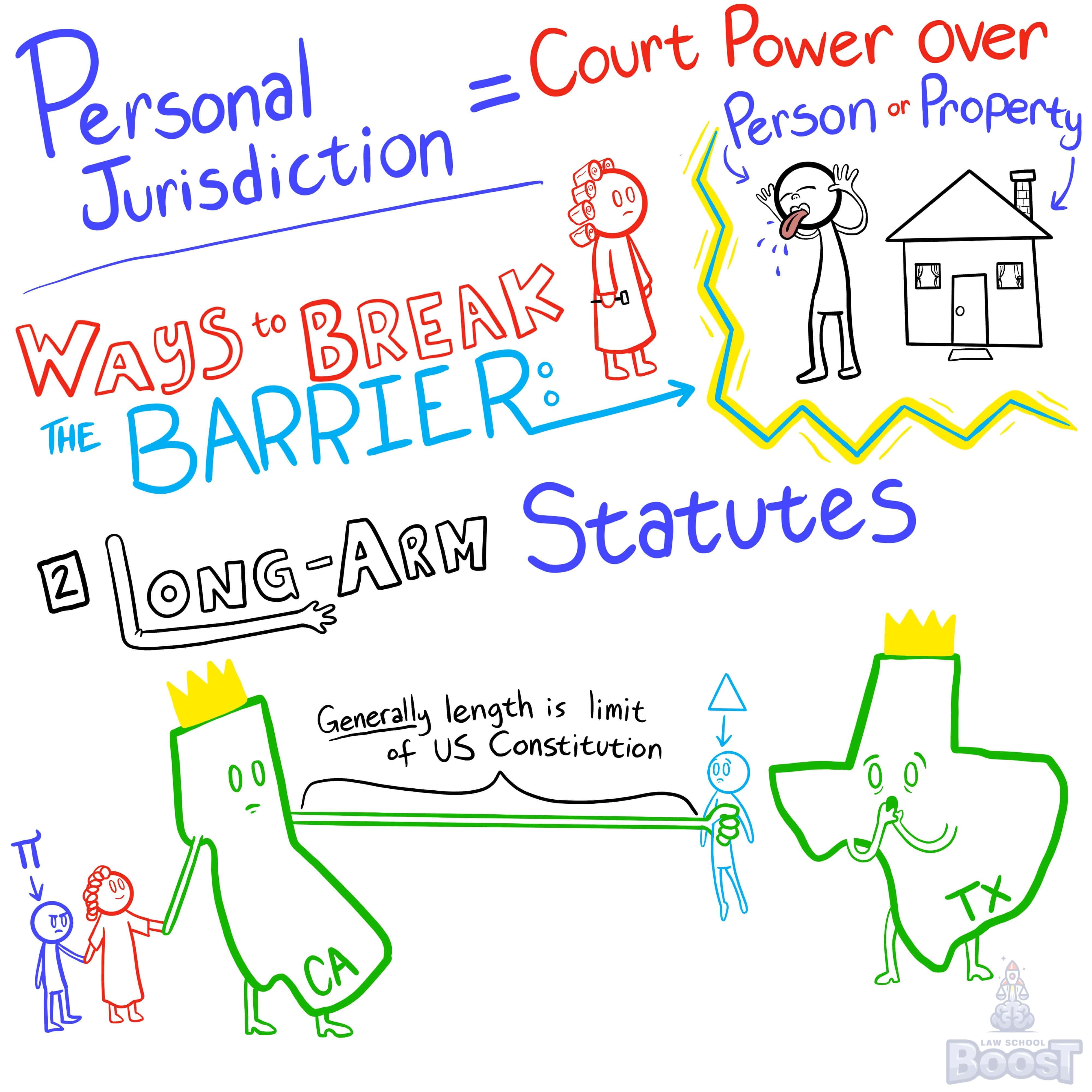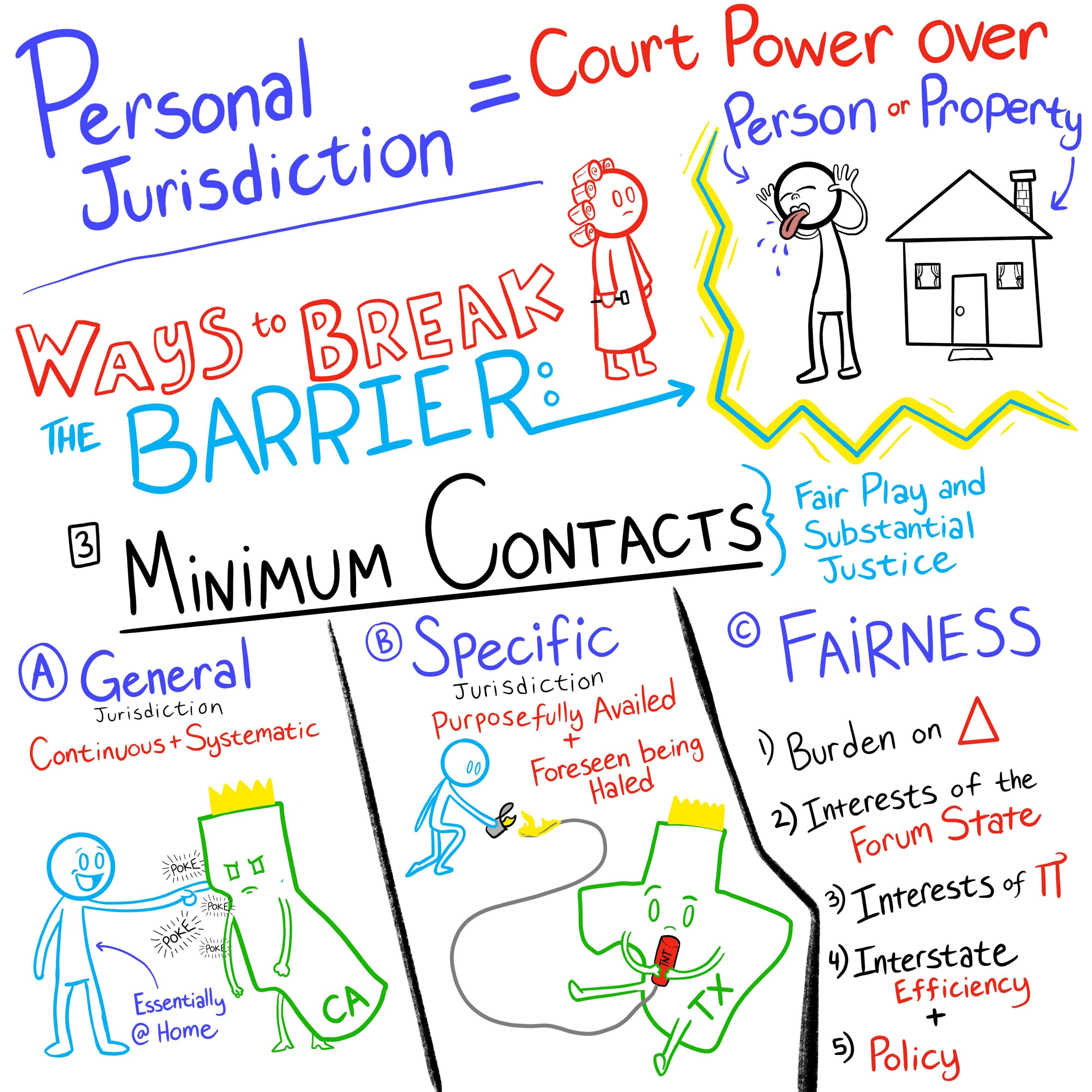🤤
Civil Procedure • Personal Jurisdiction
CIVPRO#008
Legal Definition
Under Burger King, a court exercising jurisdiction must be fair. In assessing fairness, the court evaluates several factors: (1) convenience of the trial in the forum state; (2) the forum state's interest in providing remedy; (3) the plaintiff's interest in convenient relief; (4) the interstate judicial system's interest in obtaining the most efficient resolution; and (5) the shared interest of the state's in furthering fundamental substantive social policies.
Plain English Explanation
When you argue that a court has personal jurisdiction over a defendant, you must explain how it is fair to allow a State to pull a non-resident into their courtrooms to be held accountable. The court finds fairness through balancing several factors (which you will need to consider in your essay responses):
1. How convenient it is to have the trial in the state. For example, look at where the evidence and witnesses are located.
2. Whether or not the State has a strong interest in having the case tried in their borders.
3. The plaintiff's interest in convenient relief, meaning you'll need to argue that the plaintiff will want to be inconvenienced as little as possible and how not allowing them to bring suit locally would dissuade them from pursuing justice.
4. The interests of the judicial system as a whole (similar to #1, you'll assess where witnesses and evidence are located, policy issues, etc.)
5. The shared interest of the involved states in making sure justice is served. Here, you'll look at the type of lawsuit and claim being made. Look to where the states may disagree on policies, if any. For example, if the claim has to do with environmental policies and one state doesn't care at all about the environment, they may not be inclined to support a lawsuit based on such a claim.
1. How convenient it is to have the trial in the state. For example, look at where the evidence and witnesses are located.
2. Whether or not the State has a strong interest in having the case tried in their borders.
3. The plaintiff's interest in convenient relief, meaning you'll need to argue that the plaintiff will want to be inconvenienced as little as possible and how not allowing them to bring suit locally would dissuade them from pursuing justice.
4. The interests of the judicial system as a whole (similar to #1, you'll assess where witnesses and evidence are located, policy issues, etc.)
5. The shared interest of the involved states in making sure justice is served. Here, you'll look at the type of lawsuit and claim being made. Look to where the states may disagree on policies, if any. For example, if the claim has to do with environmental policies and one state doesn't care at all about the environment, they may not be inclined to support a lawsuit based on such a claim.
Hypothetical
Hypo 1: Sam is a resident of Nevada. Sam has numerous severe disabilities. He is largely confined to a wheelchair, with no arms, no legs, and requires the services of a special doctor who owns and operates a practice near Sam's home and visits him daily to provide assistance. Another one of Sam's disabilities are severe allergies to pollen and requires that his home is sealed in a bubble. Bob sues Sam in Hawaii during the height of their flower season. Result: Sam may be able to argue that it is unfair to force him to fly to Hawaii to defend himself as it would be a substantial inconvenience and disadvantage for them. It would require Sam to find a specialist to travel with him, some sort of mobile bubble, and upon arrival his health would be in danger due to the heightened level of pollen.
Hypo 2:Bob, a resident of Alaska, purchases an insurance policy from a company in Florida. Bob was the only customer the insurance company had in Alaska, but Bob faithfully sent his check each month to pay the insurance company, which cashed the checks in Florida. After an accident in which the insurance company refused to pay Bob, Bob filed suit against them in Alaska. Result: Your instincts may say, "Sucks to be Bob because it would be unfair to make the Florida company go all the way to Alaska to defend itself," and your instincts would be wrong. It is likely that Alaska would have a strong interest in protecting its citizens from fraud committed by insurance companies (which are generally highly regulated), and thus it is likely that the Florida insurance company would need to make the trip. Hope they pack warm pants.
Hypo 2:Bob, a resident of Alaska, purchases an insurance policy from a company in Florida. Bob was the only customer the insurance company had in Alaska, but Bob faithfully sent his check each month to pay the insurance company, which cashed the checks in Florida. After an accident in which the insurance company refused to pay Bob, Bob filed suit against them in Alaska. Result: Your instincts may say, "Sucks to be Bob because it would be unfair to make the Florida company go all the way to Alaska to defend itself," and your instincts would be wrong. It is likely that Alaska would have a strong interest in protecting its citizens from fraud committed by insurance companies (which are generally highly regulated), and thus it is likely that the Florida insurance company would need to make the trip. Hope they pack warm pants.
Visual Aids



Related Concepts
What are the traditional bases of personal jurisdiction?
What is a long arm statute?
What is California's long arm statute?
What is personal jurisdiction?
What is the constitutional requirement of minimum contacts and fairness
When may a court exercise general jurisdiction over a defendant?
When may a court exercise specific jurisdiction?


